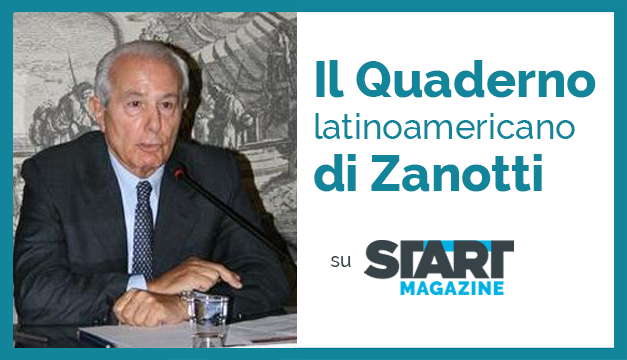I’ll tell you about polls and surprises from the election campaign in Brazil

Given as the winner by all the polls, Lula adds the Democratic center-right to his coalition to immediately defeat the opponent Bolsonaro in the first round. The study by Livio Zanotti, author of Ildiavolonmuoremai
The shadow of the military party on the presidential and parliamentary elections on October 2nd pushes Ignacio Lula da Silva and Brazil towards extra-large agreements, in search of an immediate majority. The uncertainties of the month that would elapse between the first consultation and the eventual ballotage, have aroused such uneasiness as to bring him closer to the no less worried moderates, more than one of whom was at the time a rival or ally. The fears of the present have diluted the grudges and misunderstandings of the past. Jair Bolsonaro, considered the loser by all the polls, denounces the unreliability of the electoral system (which has been in force for 20 years without dispute and with which he was also elected); he declares that this now more than close is not a normal, periodic political confrontation, but the "deadly challenge between good and evil". And the Armed Forces, present with 400 senior officials between the government and the high state bureaucracy, warn that they will check with their own accounting system and the legality of the ballot. An improper and unprecedented scruple that generates serious suspicions.
The country is shaken by the tensions of a severe economic crisis and turbulent polarization. The four years of Bolsonaro government have failed the two most awaited promises: the defense of citizens from criminal violence in large towns, the first; then the protection from Covid everywhere and above all in overcrowded urban areas, from San Paulo to Rio, Belo Horizonte, Recife, Salvador. The indices of the Instituto Brasileiro de Geografia e Estatistica (IBGE) say that crime in cities has increased and the greatest number of deaths is recorded in intervention operations conducted by the military police. Almost always accused of repressing indiscriminately, if not of being in collusion with the drug traffickers who dominate the favelas. Covid, of which Bolsonaro has always denied the pandemic danger, calling it a "common influence", caused 685 thousand deaths and enormous economic damage, recognized by the Bolsonarist governors themselves in open conflict with their political as well as institutional leader.
Bolsonaro has again heavily cut spending on health, education and social security to tax the production sectors most affected by the international energy crisis; but although it has improved, the economy has not recovered from the recession for about a year. Official unemployment is around 9 per cent and undeclared work is estimated to be on the rise, contrary to wages. Inflation rises again, close to the double digits. With 125 million Brazilians in shortages, 33 million of them in extreme poverty, out of a total population of 216 million people. The propaganda ride carried out by the president with the celebrations of the bicentenary of national independence (7 September) has not revived either the markets or his constituents. As well as the sympathies for Putin reaffirmed at the recent United Nations General Assembly. Indeed, a few cracks have opened in its vast electorate influenced by evangelical churches, devoted to tradition and to the social hierarchy.
This is a decisive front. Since if in the most markedly social forms (Pentacostal and neo-Pentacostal: their Theology of Prosperity is a hyper-voluntaristic exaltation of individualism: "it is enough to want to have" …) evangelism is active above all in areas of lower income and education, as a whole now acts in the whole of Brazilian society, that is, in almost half of Latin America. IBGE data show that from the mid-twentieth century to today the Catholic faithful in the largest country in South America have increased from 95 to 44.9 percent. While in the same period the evangelicals increased steadily, rising from 2.7 percent of the population to 39.6. Statisticians assume that the latter will overtake the former in a decade. A religious, therefore socio-cultural transition of epochal significance, which in less than a century would make the "most Catholic continent in the world" a "reformed continent". Although with much smaller numbers, a similar trend is also occurring in the other countries of the region (while – in contrast to the trend – in the evangelical United States the secularization of society is increasing).
Lula, reassured by the polls that give him 15 points ahead of Bolsonaro, therefore broke all delay. Summoning the candidate for vice-president Geraldo Alckimin, a socialist from Opus Dei, and the economist Henrique Meirelles, former world head of the Bank of Boston, president of the Brazilian central bank with Lula as head of state (2003-11), but then a supporter of Bolsonaro four years ago (therefore not exactly the best for the radical left of the PT and for the communist party do Brasil that participates in the coalition). Together they publicly gathered the leaders of the 7 left-center political formations that support them and asked for the vote of all true democratic patriots. The acknowledged ecologist Marina Silva, historical opponent of Lula and a key figure in the dismissal of Dilma Rousseff, asked to vote for Lula to pacify the country, disrupt the military party and reassert a hegemonic democracy. The following day the dollar fell, the Ibovesta index rose, the stock market celebrated. The "country risk" is now called "Bolsonaro risk".
This is a machine translation from Italian language of a post published on Start Magazine at the URL https://www.startmag.it/mondo/brasile-lula-centrodestra/ on Fri, 23 Sep 2022 06:18:08 +0000.
